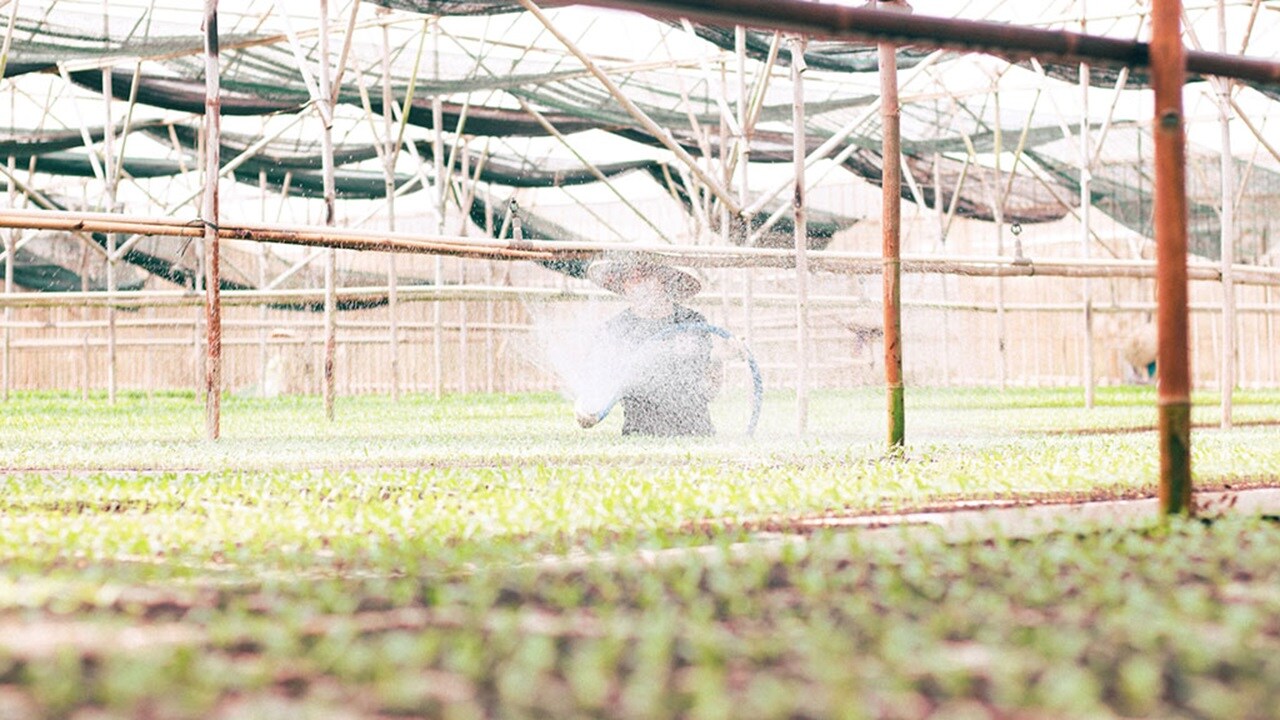While it might be tempting to dismiss consumers' desire for flowers as superficial, such an impulse would be misguided, as the cut flower industry fuels the growth of numerous emerging economies.
In fact, the global market for cut flowers is growing rapidly. The BBC reports that in the United Kingdom alone, the market for cut flowers and ornamental plants was worth 1.3 billion GBP in 2018. Meanwhile, the trade publication Florists Review predicts that the cut flowers market will hit sales totalling 47.9 billion USD by 2030, forecasting a compound annual growth rate of 5.85%.
While growth in the cut flower industry is clearly a trend that we can look forward to in the coming years, there is also movement among established markets and newer players in the field. Additionally, social and environmental sustainability are areas of increased focus as the industry grows and profits and revenue follow suit.
Trend 1: Emerging markets claim their share of the cut flower industry
When the energy crisis of the 1970s fell upon Western Europe and the United States, greenhouses growing cut flowers began to close at breakneck speed. The energy needed to keep these greenhouses in operation was just too expensive, and thus the globalisation of the modern cut flower trade was born.
While the rest of Europe shuttered their greenhouses, the Netherlands, with its rich floral tradition, stayed in operation and began to dominate the industry. Big players in the Netherlands were not only growing and selling their own flowers, but also introducing blooms from sub-Saharan Africa into the European and American markets. While the Netherlands remains the largest cut flower exporter in the world, with 5.17 billion USD in exports in 2021 alone, they are also responsible for a large number of imported flowers. In fact, the Netherlands is the fourth largest importer of cut flowers in the world, with 54.3 million USD of flowers coming from Kenya between 2020 and 2021.

Despite the size of the Netherlands' market share, increasingly Kenyan flower farmers are beginning to export directly to European markets. Cut flowers are now Kenya's second largest export (tea being first) and is particularly important as a source for roses, as the country now supplies 40% of all roses sold in the European Union. Additionally, cut flowers are now one of the largest sources of employment in Kenya, with over 100,000 people employed directly in the floral industry, and an estimated two million indirectly involved. Part of the reason that Kenya is now able to grow their market share in the European Union is due to a maturity in refrigerated technologies for transportation.
Trend 2: A focus on social sustainability within the floral industry supply chain
The growth of the cut flower industry has the capacity to affect the economies of these emerging markets, with swaths of nations' populations making a living from the industry. Thus, the social sustainability of the industry is increasingly a focus. Kenya has the largest proportion of Fairtrade flower organisations in the world, with 39 out of the certified 67, covering 30,500 people, or 30% of the countries' flower industry. The Fairtrade Foundation's flower premium allows for reinvestment in the community, positively impacting not only employees of the cut flower industry but the entire country's wellness.
It is predicted that as younger consumers reach their peak buying power, there will be an increased focus on buying with social and environmental sustainability at the core. Thus, it would be expected that businesses that illustrate their association with the Fairtrade Foundation could expect greater engagement from the next generation of consumers.
Trend 3: More environmentally friendly solutions for floral supply chains
While the cut flower industry has grown significantly, so have concerns about the environmental impact of transporting such fragile goods; at refrigerated temperatures, quickly, and all around the world. However, with the ideal environmental conditions at the growing site, the Fairtrade Foundation has found that roses grown in Kenya and sold in Europe produce 5.5 times less greenhouse gas emissions than their counterparts in the Netherlands even when considering transportation emissions. This disparity is due to the energy needed to grow such flowers in northern climates, as Kenyan growers have the sun exposure and temperatures that allow for much less energy consumption than those in Europe.
That said, cut flowers still require a sophisticated series of cold chain transportation and storage, and logistics companies have not only met this demand but have also begun to offer more environmentally sustainable solutions. With the growth of the sub-Saharan flower market, these blooms often require travel via air freight. Air is often the most advantageous logistics mode for the transportation of these flowers, since each day travelling a cut flower loses 15% of its value. Thus, the introduction of biofuels and more sustainable air cargo solutions are huge benefits for the industry as it aims to grow while minimising negative environmental impact.
While air freight continues to be a popular logistics choice for flower exporters, innovative solutions have emerged that increase the longevity and possibility to ship cut flowers via ocean routes. In fact, the supply chain issues caused by COVID-19, including less availability of air freight, led to exploration of ocean shipping for cut flowers, which has become wider-spread in the last two years. Cut flower exporters, especially in sub-Saharan Africa, can benefit from reliable refrigerated ocean shipping even more in the future; as a more environmentally friendly and affordable transportation logistics mode.
未来,您想随时了解必读行业趋势吗?
您已经完成了,欢迎“登船”!
很抱歉,发送您的联系请求时出现问题。
请查看表单字段,确保所有已正确填写所有必填信息。如果问题仍然存在,请联系我们的支持团队以获得进一步的帮助。
未来,您想随时了解必读行业趋势吗?
使用此表格注册,即可直接在您的邮箱中接收我们的洞察见解,进入一个真正的综合物流世界。简单操作,即从我们为您量身定做的精选文章中获得启发,了解相关行业洞察信息。您可以随时取消订阅。













